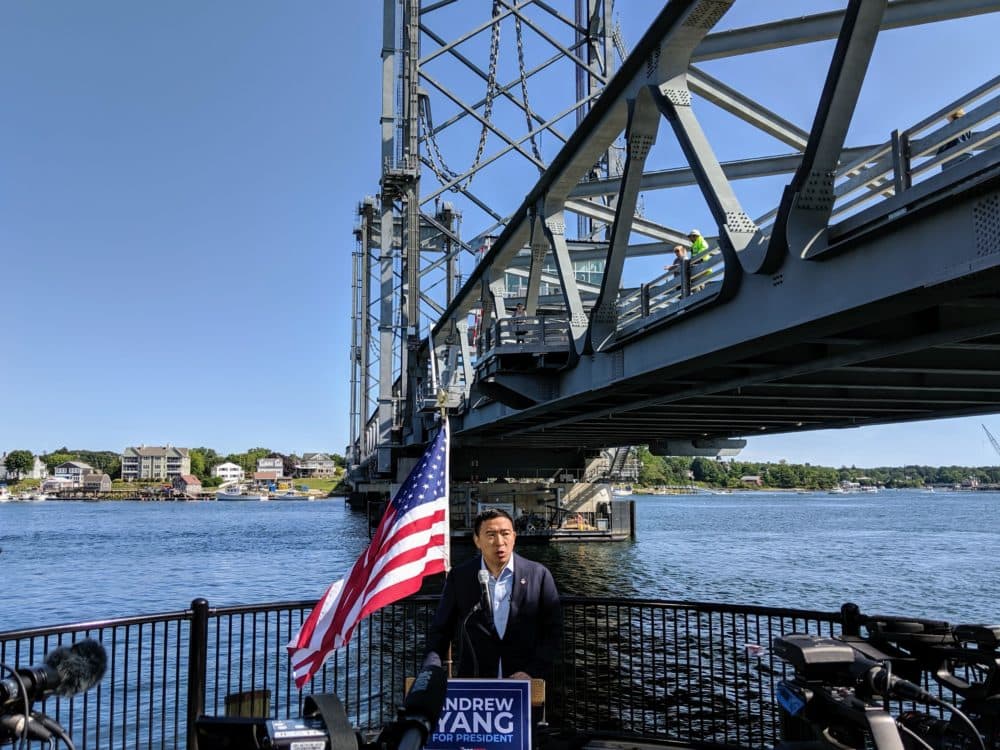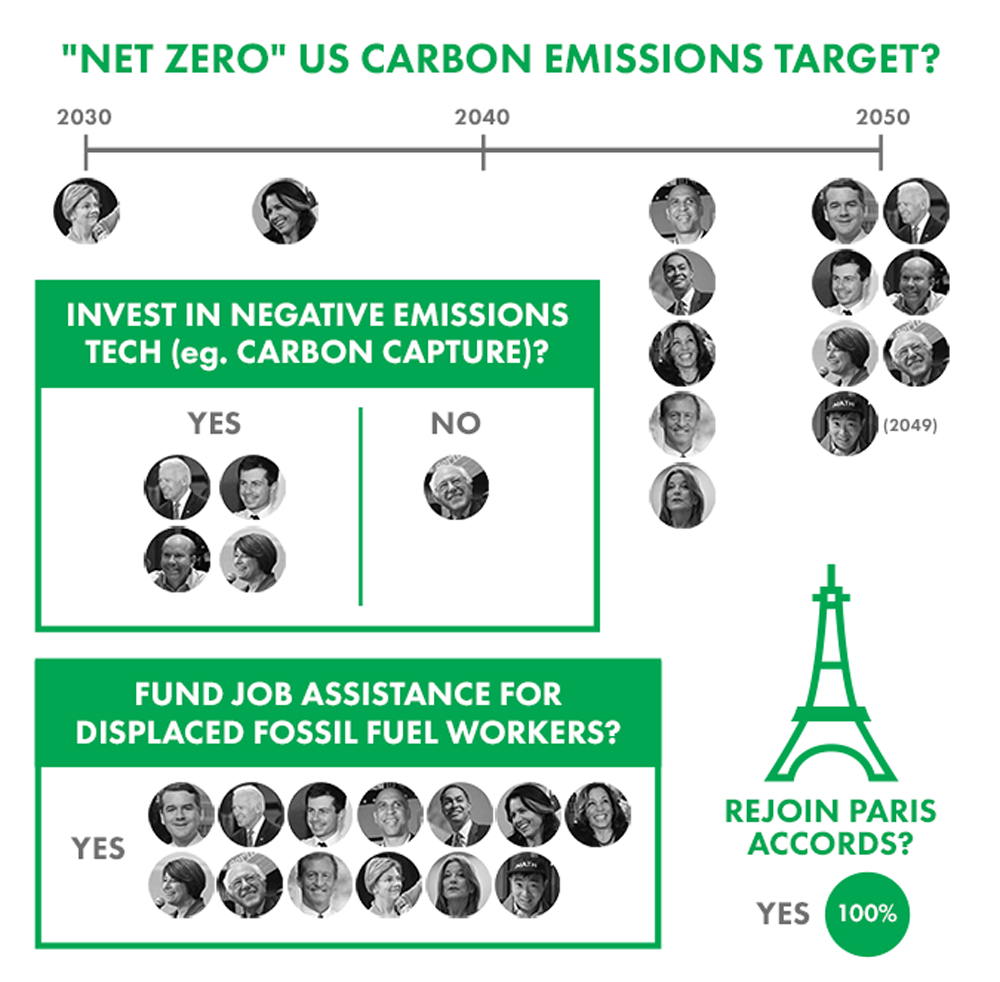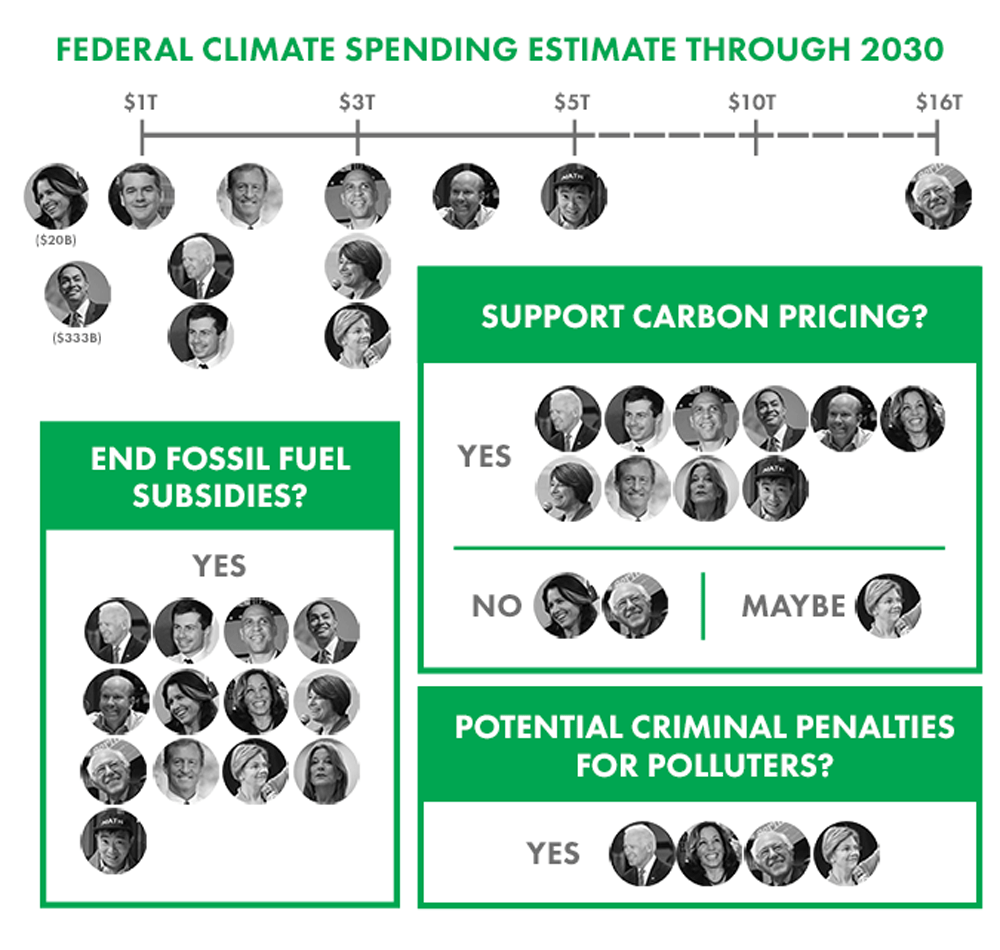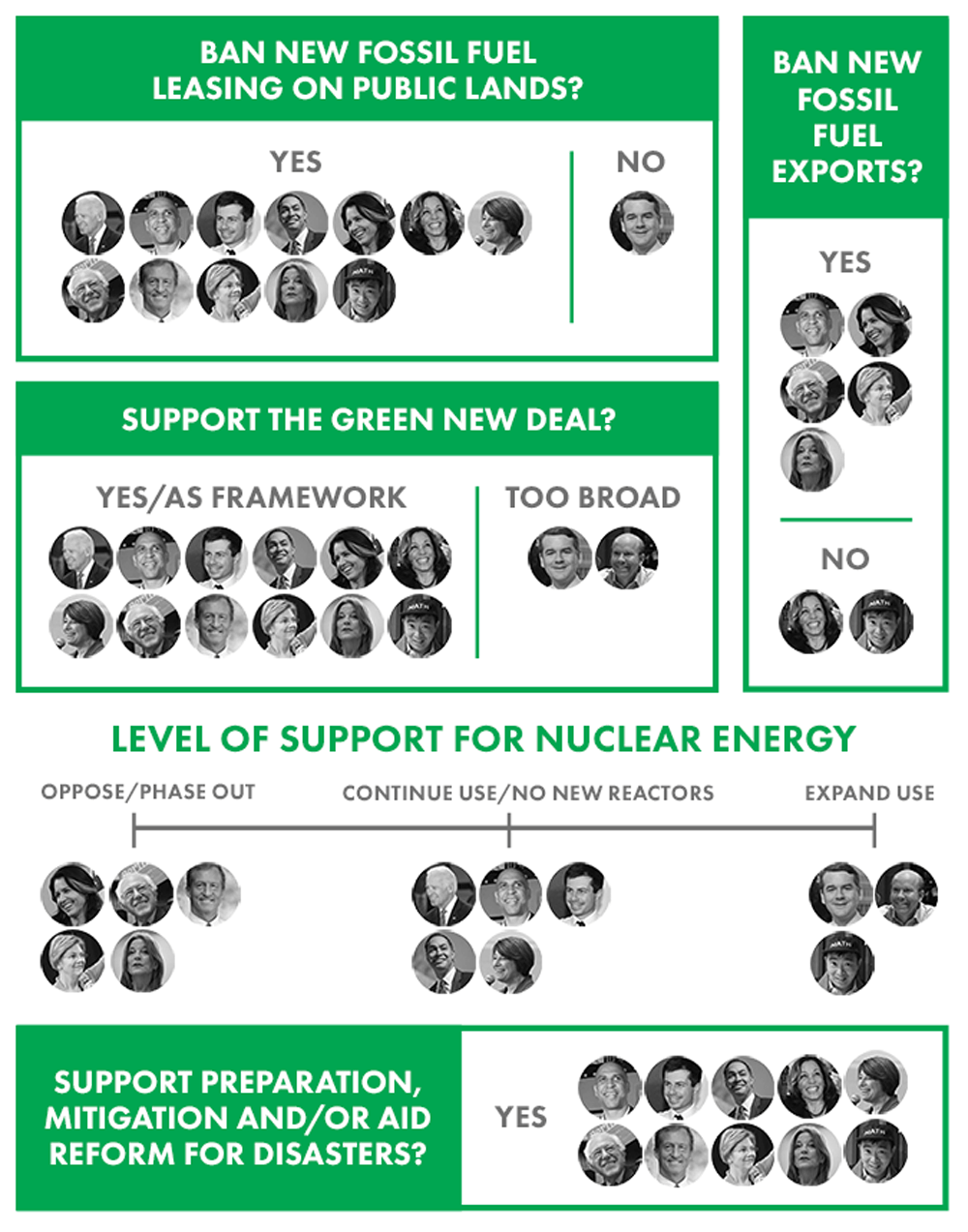Advertisement
Where They Stand: Climate Anxiety Persists On N.H. Campaign Trail As Candidates Tout Big Plans
Resume(Click each candidate to see their climate proposal, and keep reading to see how their plans compare. You can also click here to see a detailed comparison that NHPR will continue to update.)
A few months ago, New York Democrat Andrew Yang announced his climate change platform in a picture-perfect spot on the Portsmouth waterfront – cloudless blue sky, boats rocking in the nearby marina.
“On a beautiful day like this, it’s easy to talk yourself into the fact that climate change may not be bearing down on us and pose an existential threat,” Yang said. “But the numbers unfortunately tell a very clear story…”

His plan to respond to that threat comes with a multi-trillion-dollar price tag, and a headline: “It is worse than you think.”
But even as the entrepreneur detailed a path to making the U.S. carbon neutral within the next few decades, some voters who came to listen were still uneasy.
Cynthia Harriman of Portsmouth says she’s not convinced climate change will remain an urgent priority for candidates – or voters at large.
“It’s such a gradual thing – it’s like the frog in the hot water, we aren’t necessarily feeling it all the time. And then there’s a huge storm, and we go, ‘oh yeah, climate change, we ought to think about it,’ and then … as soon as it's nice again, we stop,” she says. “That’s why we need even more attention on it, because it doesn’t do the kind of daily nagging that some of the other big problems do.”

Those other problems are the ones that have dominated the campaign conversation, including the televised Democratic debates. According to The New York Times, out of 11 hours of speaking time in the first four debates, climate change took up just over 30 minutes.
The issue isn't just competing for air time; it's hard to talk about even when it is in the spotlight.
Portsmouth voter Valerie Enders was also at that Yang event. She says some potential climate solutions – like a widespread shift toward a plant-based diet – feel overwhelming to her.
“When you think about whether that’s actually doable and considering that we don’t have control over the rest of the world … it’s very daunting,” Enders says.
Some are trying to make this massive problem more accessible by breaking it down into specific topics.
New Hampshire yogurt-maker Stonyfield is hosting a series of campaign forums on climate and agriculture. But so far, the events have only drawn candidates who are lagging in things like poll numbers and debate appearances.
One of those was former Maryland Congressman John Delaney. Like many candidates, he says he wants to make the U.S. carbon neutral by 2050.
“I believe we can do it, but we have to start acting now,” he said at Stonyfield. “And we need real solutions, not impossible promises, to this challenge.”
Delaney’s solutions include a price on carbon and an end to fossil fuel subsidies, both common features across most candidates' climate plans.

For voters like Elizabeth Deutsch, these solutions seem easier said than done – and tough to really unpack on the campaign trail.
“It is hard to take science and move that into a quick sound bite,” Deutsch says. “There’s so much education that has to go on in order to make the true scope of this problem really understood.”
Other voters say climate change does feel urgent — but the presidential race isn't the best place to talk about it.
John Mara from Rindge came to see New Jersey Sen. Cory Booker speak at a coffee shop in Derry last month. Mara says most big climate policies will take years to develop and enact – whereas issues like immigration reform or income inequality feel like more immediate concerns.
“And there’s no doubt that climate change is a threat – don’t get me wrong, I’m not saying that it’s not important, it surely is, it absolutely is,” he says. “There’ll just be a longer gestation period on it. It’s a twenty-year-, fifty-year issue.”
That is the time scale of most of the candidates’ climate plans. Some relatively simpler solutions, like rejoining the Paris Climate Accords, are listed as day-one goals.

But for many New Hampshire voters, the overall issue seems to present a paradox: Climate change is happening both now and far in the future. It feels both urgent, and too big for any one politician to solve alone.
The anxiety that comes from that is hard to address with a soundbite or spending plan.
“There’s still that fear that once people are in office, it’s going to be put on the back-burner like a lot of other issues have in the past,” says Hayley Monahan-Forgione, a Derry resident who came to the Booker event.
The candidate lists an ambitious climate plan on his website – but it didn’t come up in Derry at all.
Editor’s note: A child mentioned in an earlier version of this story has been removed at the request of the parent.
This story is a production of the New England News Collaborative. It was originally published by New Hampshire Public Radio on Dec. 3, 2019.
This segment aired on December 4, 2019.